It is mystifying why commentators on the Indian side, including some who have officially dealt with Pakistan, should have been so critical of their own government for the failure of the Ufa initiative. They seemingly hold our side more responsible for the fiasco, overlooking or downplaying not only Pakistan’s conduct prior to the talks, but its almost seven decades of perennial hostility, recourse to violence and single-minded pursuit of its Kashmir agenda. At least foreign policy professionals cannot disregard our long and frustrating experience of dealing with Pakistan while making their assessments of why the NSA level talks broke down. Some of them, in eloquent prose flowing from a sardonic pen, have ridiculed the government. One can be self-critical and feel an intellectual obligation to be “objective”- for which swatting one’s government is necessary for credibility- but what might appear to be intellectual honesty can well be a form of intellectual arrogance, an I-know-better-than-these-stupid-policy-making-fools syndrome. Of course, all critics do not belong to this category, as there will always be genuine differences of opinion on complex issues. How issues are viewed ultimately depends on an individual’s temperament, his political and even ideological leanings, his interpretation of facts and his perception of “national interest”.
One could argue that we should not have engaged Nawaz Sharif at Ufa because the signals from Pakistan before and since he took over have not been conducive to a fruitful dialogue. Whatever the reasons that prompted the government to do so, the Ufa press release made the scope and purpose of the NSA level talks clear. In this document the two Prime Ministers agreed that they are “prepared” to discuss all outstanding issues- no specific time frame or mechanism for doing so is mentioned- and cooperate with each other to eliminate terrorism from South Asia. Following this generally worded commitment they agreed on some specific steps: a meeting in New Delhi between the two NSAs to discuss all issues connected to terrorism; early meetings of DG BSF and DG Pakistan Rangers followed by that of DGMO; a time-bound decision to release fishermen in 15 days. The Ufa release also spoke of a mechanism for facilitating religious tourism and ways and means to expedite the Mumbai case trial, including additional information like providing voice samples.
The NSA level talks were, indisputably, intended to deal only with terrorism-related issues. Following the pervasive criticism in Pakistan that Nawaz Sharif unforgivably fumbled in not mentioning Kashmir in the Ufa release, the Pakistani side sought to rewrite the agenda of these talks by insisting on the inclusion of Kashmir. Our government was right in saying that the NSA level talks had to be confined to terrorism issues. After discussing terrorism-related issues with the Indian NSA, Pakistan’s Sartaj Aziz, as he has since said on out TV, could have raised the modalities of future discussions on Kashmir with the Indian PM during his courtesy call on him (which the two PMs said implicitly at Ufa that they were prepared to discuss), or his Foreign Secretary could have raised the matter with his Indian counterpart. We would have been on firm ground in responding to both Pakistani interlocutors that the Kashmir issue could only be discussed after the other steps such as the meeting between the DG BSF and DGMO with their Pakistani counterparts had been completed and ways and means to expedite the Mumbai trial had been discussed, as stipulated at Ufa. Sushma Swaraj was right in saying that the implicit readiness to discuss Kashmir was a “preambular” commitment and that the subject could not be discussed at the NSA level. It is Pakistan that has sought to amend the Ufa agenda to suit its political need to counter domestic criticism. To say that the Indian Foreign Minister painted the government into a corner by asserting that Kashmir could not be discussed is absurd. It is Pakistan’s effort to shape the agenda under domestic pressure that was thwarted. To be receptive to Pakistani propaganda on this point shows how fragile is the understanding of critics of their own country’s interest.
It is also baffling that the decision to prevent Sartaj Aziz from meeting the Hurriyet should be seen as one more instance of government’s foolishness. Why is it wrong for the government to stop the representatives of a country that has territorial claims on Kashmir, and demands self-determination there in violation of the Simla Agreement to boot, to meet in India’s capital separatist elements from Kashmir that too support self-determination? By allowing this in the past India has facilitated the nexus between those within and without the country who contest India’s sovereignty. Continuing to give political oxygen to the idea of self-determination and keeping it alive with our support is hardly in our interest. If the government is foolish in preventing contacts between Pakistan and the Hurriyet, what is the great wisdom in Pakistan insisting on meeting seditious elements in J&K, if it is serious about mending fences with India? If it is Sartaj Aziz’s case that the people of Kashmir have to be consulted, why doesn’t he seek meetings with all the political parties in J&K? Who has given him the authority to determine that the Hurriyet alone represents the people of Kashmir? Why is the Speaker of the J&K Assembly persona non grata in Pakistan? Does he not represent the people of Kashmir? If, as our own critics argue, the Hurriyet is politically unimportant and marginalised and therefore we should ignore its contacts with the Pakistanis, why is it that the Pakistanis don’t reason that way? Why don’t they realise the futility of such meetings, particularly if the argument on our side is that they have not materially affected the situation?
Another argument that the Pakistanis give, and which has many takers in India, is that the Pakistanis have been meeting the Hurriyet for 20 years, so why are we objecting to it now and painting ourselves into a corner. One obvious answer is that it is written nowhere that if you have committed a mistake you are obliged to perpetuate it. More than that, the Pakistanis could well claim by the same logic that as we have delinked terrorism from dialogue in the past and so we cannot link the two again. Or that because they have committed terrorist attacks against us for the last 30 years and we have not retaliated, they have developed a lien our forbearance and we cannot now think of retaliating. The Hurriyet leaders refuse to talk to India’s political leadership but run to Delhi to meet the Pakistani leaders. That we have tolerated this for so long reveals our confusion and weakness and it was high time that this absurd situation was remedied. Moreover, if, instead of seeing India’s liberalism in allowing the Pakistanis to meet the Hurriyet leaders on Indian soil as evidence of India’s willingness to swallow a politically offensive practice for the sake of finding solution to our problems with Pakistan, the Pakistanis have raised the ante by accusing us involvement in Balochistan and even in the Peshawar school attack in complicity with the Taliban, why should we tolerate their open truck with the separatists in Kashmir? The Hurriyet issue was responsible for the breakdown of the FS level talks. The Pakistani side knew what was at stake, but wanted to politically humiliate us by making us reverse our earlier position on not allowing the contact with Hurriyet to take place. To view our firm position on the Hurriyet issue as a public ultimatum and calling our handling inept amounts to playing Pakistan’s game and confusing our own public opinion. That some our Pakistan hands can argue that Sartaj Aziz was not proposing the presence of the Hurriyet at the NSA level talks and that his meeting them at a reception in the Pakistan embassy met the criterion in of using “peaceful means” to settle differences as is mentioned in the Simla Agreement is as ludicrous as their characterisation of our objection to such a meeting as “farcical”.
The other criticism that by allowing the talks to be cancelled we set back our anti-terror agenda as we lost an opportunity to confront Sartaj Aziz with all the additional hard evidence we had gathered about their involvement in terrorist activity in India has no legs. When Pakistan consistently denies any such involvement, argues that it is itself a bigger victim of terrorism than India, challenges us to provide evidence instead of levelling unfounded charges, proposes joint mechanisms to deal with the issue, attacks us in return for fuelling terrorism in Pakistan even in league with the Taliban, hits at us with the Samjhauta Express case as one perpetrated by state actors as against the purported involvement of non-state actors in their case, why do we assume that at the NSA level talks their defences will have collapsed and they would have been left speechless in the face of the evidence we would have presented them. It is worth recalling that Pakistan had denied Ajmal Kasab was Pakistani. With all the additional evidence that has since surfaced through the Headley case, for instance, Pakistan has succeeded in stone-walling all pressure to expedite the Mumbai case trial, and even allowed Lakhvi, the mastermind, to obtain bail, not to mention its continued political cuddling of Hafez Saeed even with a US bounty on his head. Now it is denying that Naved is a Pakistani. If the talks had taken place Sartaj Aziz would have engaged in familiar point scoring on terrorism. If Pakistan got us to resume dialogue with them a few months after the monstrous Mumbai attack that exposed it terrorist affiliations internationally, we are not going to shame them with more evidence and get them to at last dismantle the infrastructure of terrorism in their country or acknowledge their guilt.
We did not lose the plot in the latest bout of diplomatic confrontation with Pakistan. It is Pakistan that wanted to change the plot decided at Ufa; we did not allow it do it, to the frustration of those Pakistanis who believe in always worsting us in the diplomatic game, and those in India who think that if we cede ground we look better in the eyes of the international community and their own.
Published Date: 4th September 2015, Image Source: http://www.abplive.in
(Disclaimer: The views and opinions expressed in this article are those of the author and do not necessarily reflect the official policy or position of the Vivekananda International Foundation)



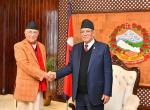
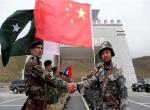

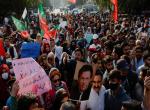
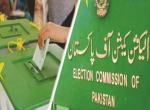
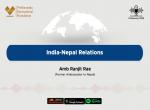
Post new comment